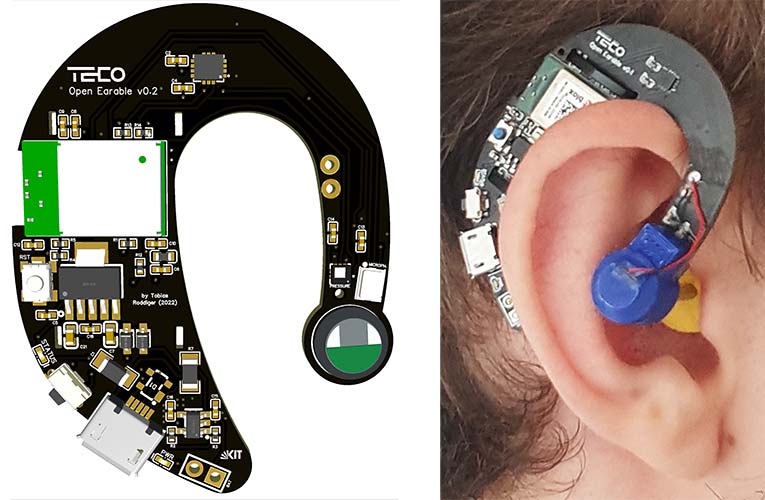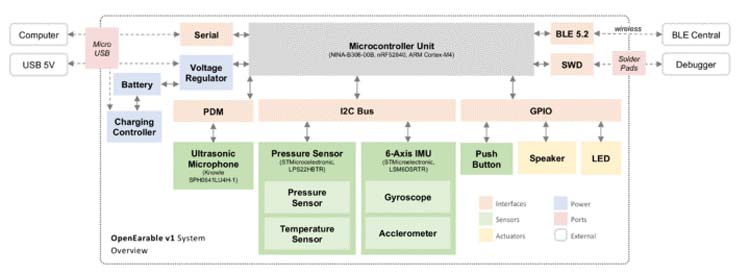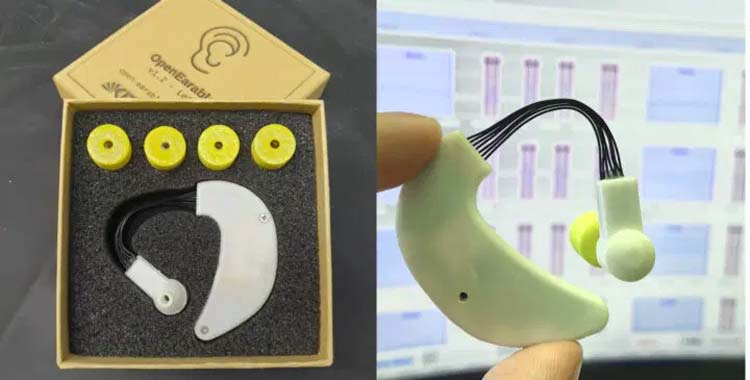
The Karlsruhe Institute of Technology in Germany has developed an inexpensive and highly extensible development platform called OpenEarable to address the lack of access to adequate development platforms in the earables market. The OpenEarables system is a wearable platform equipped with various sensors, including a three-axis accelerometer and gyroscope, an ear canal pressure and temperature sensor, and an inward facing ultrasonic microphone and speaker. The system processes this sensor data and handles interactions with the wearer through an implementation of the Arduino Nano 33 BLE Sense microcontroller development board on a custom over-the-ear hook-shaped PCB.

The firmware for OpenEarable captures data from all its sensors and transmits it wirelessly via Bluetooth Low Energy. The firmware also includes support for machine learning on the edge, enabling developers to collect, label, train and deploy machine learning models. The team behind OpenEarable has also demonstrated the capabilities of the system, showing how the ear canal pressure sensor can detect jaw movements and how the ultrasonic microphone can reveal the shape of the ear canal, which could be used as an authentication mechanism for various services.

OpenEarables is designed to be a development toolkit rather than a finished product, and its hardware design and software are open source and available on the project website under a permissive license. With upgrades planned for some of the sensors, and the possibility of pairing the earpiece with another on the other ear, the potential for innovation using OpenEarables is vast. Developers can leverage existing libraries and documentation via the Arduino platform, making the system accessible and cost-effective at just $40 per unit.

